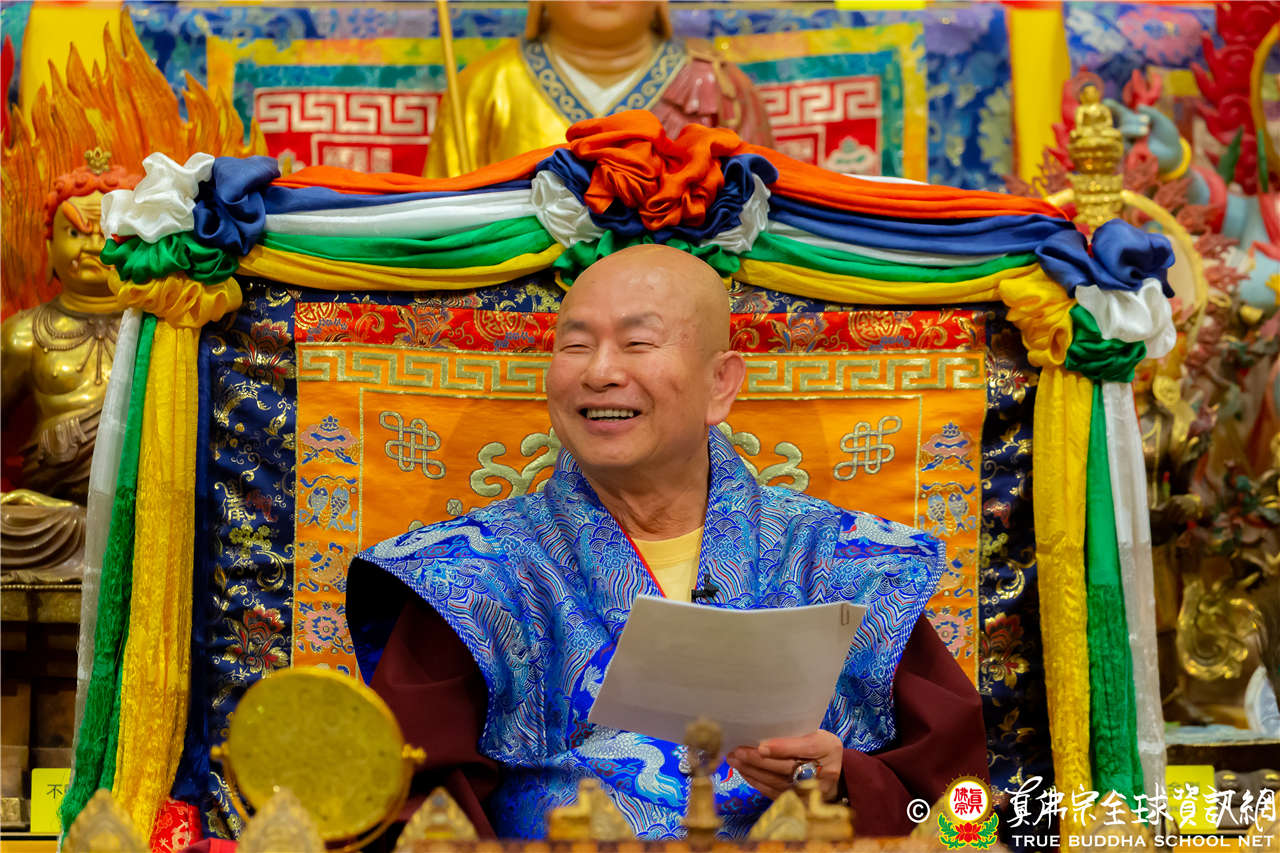
A Detailed Exposition of the Vimalakirti Sutra
by Grandmaster Lu, Living Buddha Lian Sheng of the True Buddha School
Translated into English by the True Buddha School Vimalakirti Translation Team
Discourse 32, 10 September 2022 - Chapter One—Buddhaverse (Continued)
Chapter One—Buddhaverse
Proficient in all profundities of the supreme dharma, they were the guiding teachers of an ocean of dharma treasures. They knew full well the coming and going of sentient beings—their motives, minds, and actions. They nearly equaled the self-mastery[1] of wisdom, the ten powers,[2][the four] fearlessnesses, and the eighteen uncommon characteristics[3]of the unequalled[4]buddhas.
Let’s now talk about the Vimalakirti Sutra.
Proficient in all profundities of the supreme dharma…
According to Vimalakirti, we know that the whole universe is inherently empty—the wisdom of true emptiness states that everything is empty, and all dharma is empty. This is true, but there is existence amid emptiness, and there is no differentiation between the two: existence is emptiness, and emptiness is existence.
Buddhadharma is extremely vast and deep; it is also supremely marvelous and sublime. It is not right to say [or cling to the view] that everything is empty because such an extreme is annihilationism. [The other extreme is where one believes that] everything permanently exists, also known as eternalism. Both extremes are not right, so you cannot lean toward either side, or it would not be buddhadharma.
If you believe everything is empty, you imply that cause and effect is also empty. If so, how do you explain the law of cause and effect? How do you explain karma? In buddhadharma, we talk about the existence of cause and effect, and causes and conditions. So karma is not empty!
Proficient in all profundities of the supreme dharma…
The profundities here refer to the profound and sublime meaning of buddhadharma, that everything arises due to causes and conditions and comes into existence amid true emptiness. It is profound when referring to emptiness and sublime when referring to existence. You cannot lean toward emptiness or existence, and buddhadharma is not in between the two either. Instead, it should be the middle way. That’s all we can say about it.
Sakyamuni Buddha once used the analogy of a guitar’s strings. They will break if they are too tight, but they cannot play beautiful music if they are too loose. So, it needs to be just right. This is the meaning—everything needs to be just right. You cannot lean toward either emptiness or existence. It needs to be in just the right condition.
When I was very young, I lived in the Taiwan Power Company Dormitory on Linsen Road in the Sinsing District of Kaohsiung. Back then, we had a placard hung in our home that said, “Human life is like Sai Weng’s horse.” It left a strong impression on me.
We all know this anecdote about Sai Weng—the old man at the frontier—losing his horse. The old man lost his stallion, and his neighbors pitied him for his loss. Yet the old man remained calm and lived on as usual. After some time, the stallion came back with a mare. His neighbors were happy for him, “Nice! Though you initially lost a horse, you now have two horses!” It should’ve been a happy occasion, yet the old man remained unaffected; he was neither happy nor sad. When his only son rode on the mare, he fell and injured his leg. The neighbors sympathized, “We thought it was a joyous occasion, but it turned out to be a disaster. Having injured his leg, he is now handicapped!” All the same, the old man was unperturbed—neither happy nor sad.
Then, one day their country called on its men to serve the country. Only the old man’s son stayed home due to his handicapped leg. The neighbors sighed and said, “All our sons now serve in the military, except the old man’s.” They all fought in the war and died, leaving only one young man in the village. The old man’s son got to marry all the women. They felt happy for him, but the old man stayed the same—not happy and not sad. The old man did not lean toward either side.
Everything is the best arrangement, as I often say and write. Good and bad fortune come one after another; good luck, bad luck, good luck, bad luck… If it is not good luck, it is bad luck. If it is not bad luck, it is good luck. In life, you should acquire a mindset that sees through our world. This way, you can cut off many troubles and afflictions.
What use is buddhadharma? To clear away afflictions and cut off attachments! Once you master the profundities of buddhadharma, you will be like Sai Weng. You accept life with optimism and live at ease in any circumstance. Neither will you mourn disasters nor celebrate good fortunes. You calmly face all that may come and take everything as the best arrangement. Only then, is your heart-mind truly unaffected, just like the old man.
That placard in my old home, “Human life is like Sai Weng’s horse,” greatly influenced me. It is why I never feel ecstatic or sorrowful about anything.
By being proficient in all profundities of the supreme dharma, you will comprehend that everything is the best arrangement. Buddhadharma is not about the extremes—so no annihilationism or eternalism. You should stay away from these extremes. Everything in the world is a weaving of both good and bad luck. Things you believe to be good luck turn out to be bad luck, while bad luck turns out to be good luck. That is why we should be very much at ease living in this world and cut off all our worries and troubles.
If you can eradicate all your afflictions, then you are:
proficient in all profundities of the supreme dharma.
Otherwise, afflictions are endless. Some people are troubled by spouses, children, and grandchildren. Please don’t be! Do not compare yourself to others, either those above or below you. Just live your own life. By being mindful of the profound and sublime meaning of the buddhadharma, you can cut off all your attachments and afflictions.
Some people are attached to dharma, but if you cling to dharma, your attachment is also wrong! Fixation is not necessary, even to dharma. Some people think, “Other people have spiritual responses, so why not me?” Then you become fixated on getting spiritual responses and are afflicted by it.
It doesn’t matter whether you experience any spiritual responses or not in your spiritual cultivation, as long as you are on the path of the profound and marvelous dharma. It is great if you have spiritual experiences, but it is also perfectly fine if you do not. If you understand this, then you are free from any attachments.
Likewise, you may think, “Others have transcendent powers; why don’t I?” Don’t fret over it. So what if they have it? You don’t want to seek transcendent powers anyway because if you do, that is wrong. They come naturally. It is the same with spiritual experiences. Everything happens naturally. Without transcendent powers or spiritual experiences, the buddhas will still come and deliver you to the pureland if you have the heart-mind for it.
That’s my simple explanation of the phrase:
Proficient in all profundities of the supreme dharma…
The above analogies are just examples of the profundities of dharma, because the totality of dharma profundities involves too many things.
Although everything is illusory and inherently empty, you cannot be too attached to this principle and do whatever you want. Karma still exists! I have talked about karma before. It is very simple! Where there is smoke, there is fire. This is cause and effect. Today, while driving out, I noticed smoke above the spirit money burners. I thought, “Oh no, that’s a lot of smoke! Perhaps the neighbors will take issue, and the fire department will come.” But as I continued driving, I saw that it was smoky everywhere. It dawned on me then that there must be a forest fire nearby because the whole area was hazy.
When you see smoke, there must be fire. This is cause and effect. Only when there is a cause is there an effect. Fish and water go hand-in-hand. When you notice the earth’s surface temperature is increasing, you know that an earthquake or a volcanic eruption is bound to happen because that’s how they are detected. These are all causes and effects; thus, cause and effect do exist.
The ongoing COVID-19 pandemic has caused many deaths and problems, but we can look at the bright side. For example, now ladies don’t have to put on lipstick or makeup underneath their masks. By wearing masks, you are less likely to catch a cold or flu. So, there is still a positive side to it. In this world, opposing forces—such as good and bad things, auspicious and inauspicious events, and good and bad luck—go side by side.
Understand this profound and marvelous meaning of buddhadharma! Upon understanding the wisdom of true emptiness, you should also comprehend the wisdom of discernment—which refers to the dharma. When you know how to utilize and harmonize [the two wisdoms], then you will have understood the profound and marvelous meaning of buddhadharma. This is Grandmaster’s explanation.
Others’ explanations typically go like this: “Everything arises due to causes and conditions. What are causes and what are conditions? By understanding the causes and the conditions, they are proficient in the profound and marvelous meaning of buddhadharma.”
In this world, there are wars, pandemics, epidemics, famines, etc., yet there is no need to grieve over them. There is also no need for sorrow because of climate change. No matter what happens, do not fret over it. Interviewers often ask me, “What does the future hold for True Buddha School? What is your plan? What is your hope for True Buddha School?” My answer has always been, “Absolutely nothing.”
This answer is profound! I would even say that the True Buddha School is irrelevant to me. That’s how it is for me. I let everything run its course—all naturally. This is my philosophy.
Many similar questions have been asked about True Buddha School. “So are you saying that you don’t care whether True Buddha School lives or dies?” My answer was, “It’s fine whether True Buddha School is here or not. Anything is fine.” You need to understand the meaning behind this: Let it develop naturally. Then the True Buddha School will not become an affliction. We only do our best and put forth our best effort, yet we do not concern ourselves with the results.
Understanding the profound and sublime meaning of buddhadharma means that I give my best effort and work diligently, but I don’t concern myself with the results. For example, it does not really matter whether Grandmaster goes to Sukhavati, Maha Twin Lotus Ponds, the hells, or the three lower realms. Why?
Because Vimalakirti says that the great bodhisattvas reincarnate in the six rebirth realms according to the minds of sentient beings. They can go to any realm—hells, hungry ghost, animal, asura, human, or heavens—they don’t have to go to the purelands or return to the Maha Twin Lotus Ponds. A great bodhisattva manifests according to the minds of sentient beings in order to deliver them. Only then are they called the great bodhisattvas. Thus, they are proficient in all profundities of the supreme dharma.
Om mani padme hum.
[1] Isvara 自在in Buddhism refers to the transcendence of birth and death and the liberation from afflictions and transmigration. In various context, it has also been translated as “self-mastery,” “unhindered,” “no hindrance,” “at ease” and similar phrases. In Hinduism, Isvara or Ishvara also refers to Mahesvara, or the lord, king, supreme self, and more.
[3] aṣṭādaś-āveṇika-buddha-dharma refers to the eighteen uncommon merits/characteristics unique to a buddha.
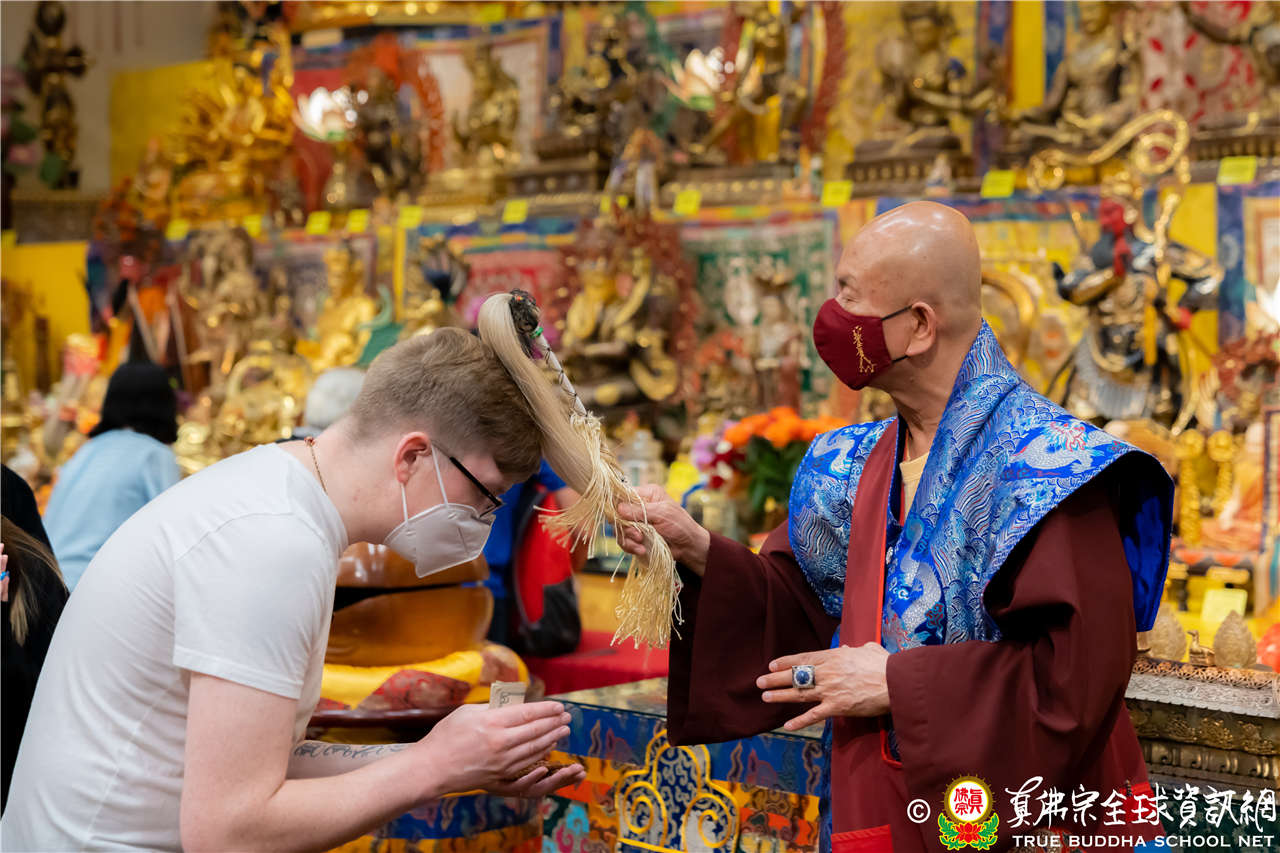
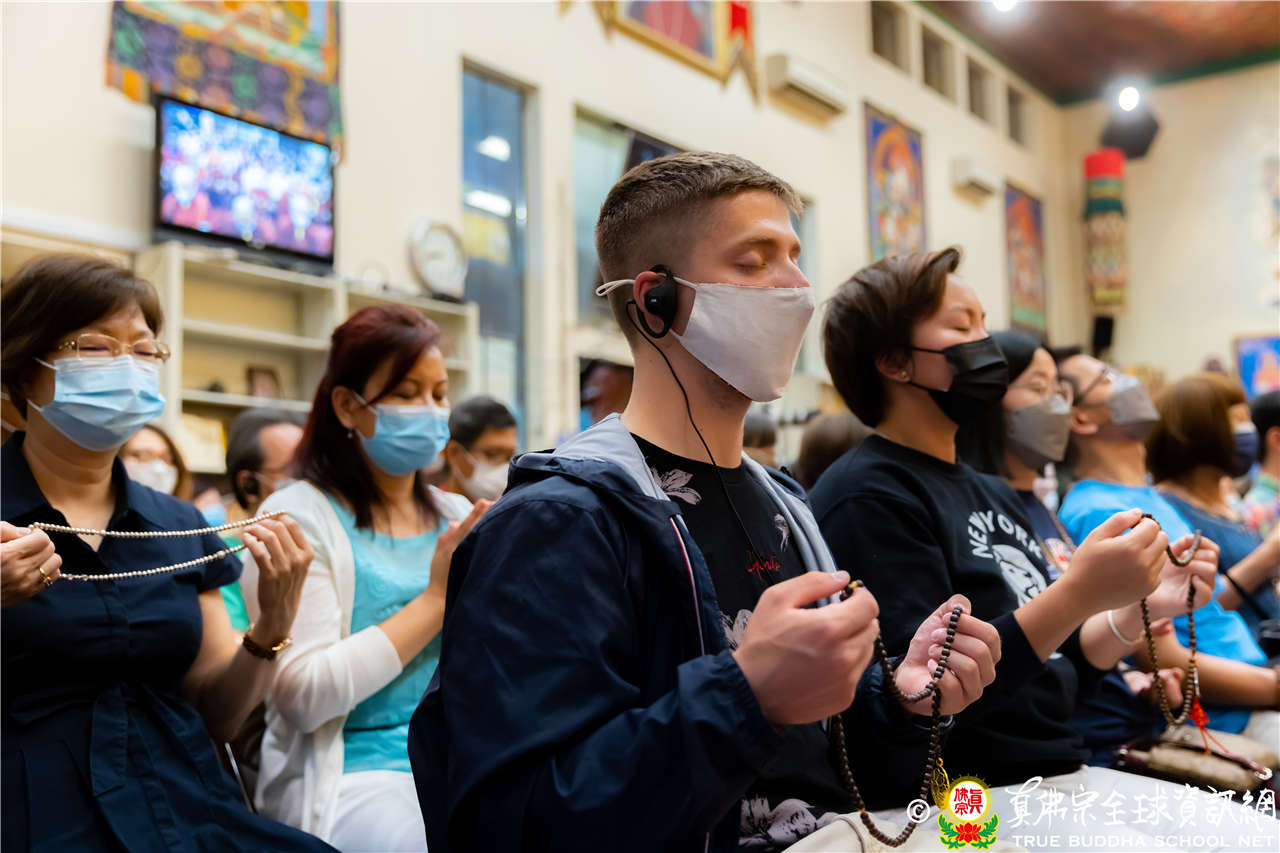
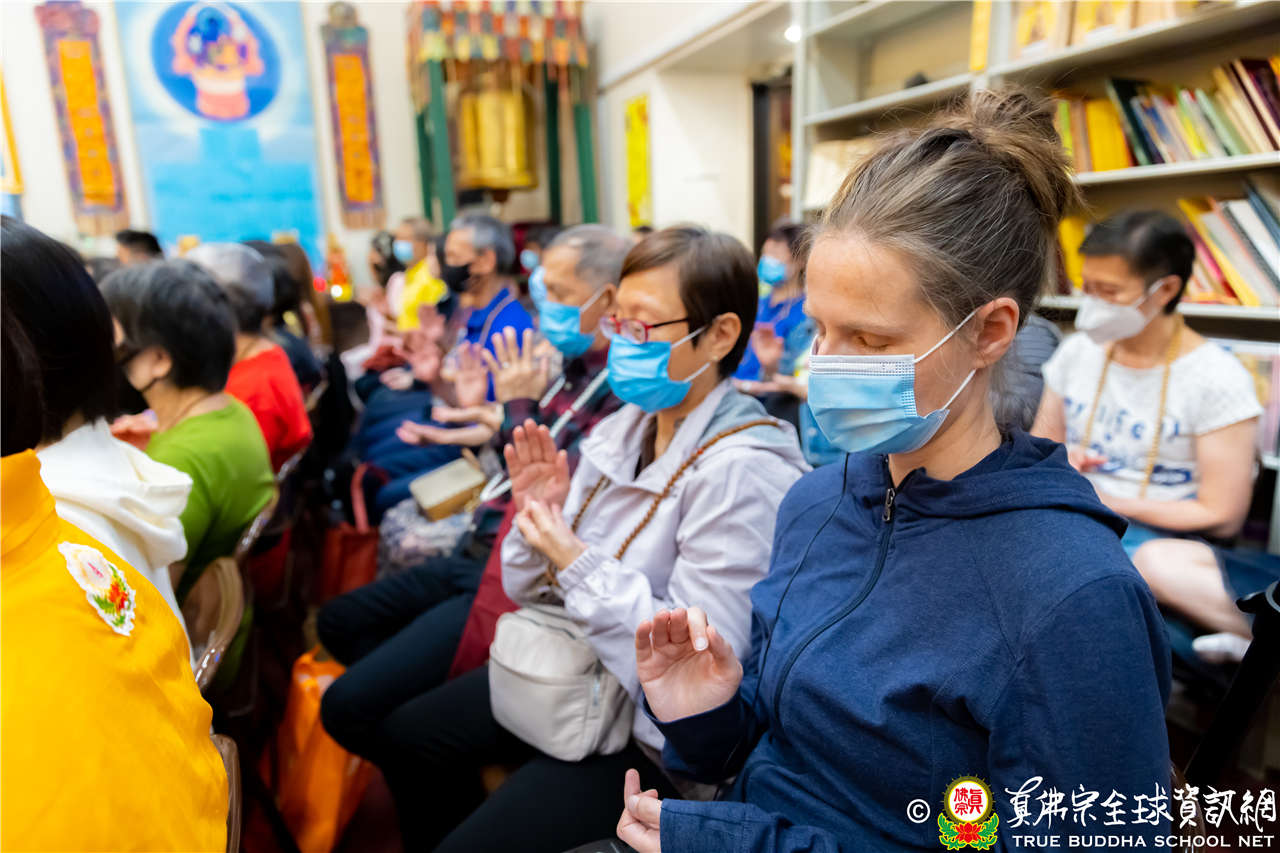
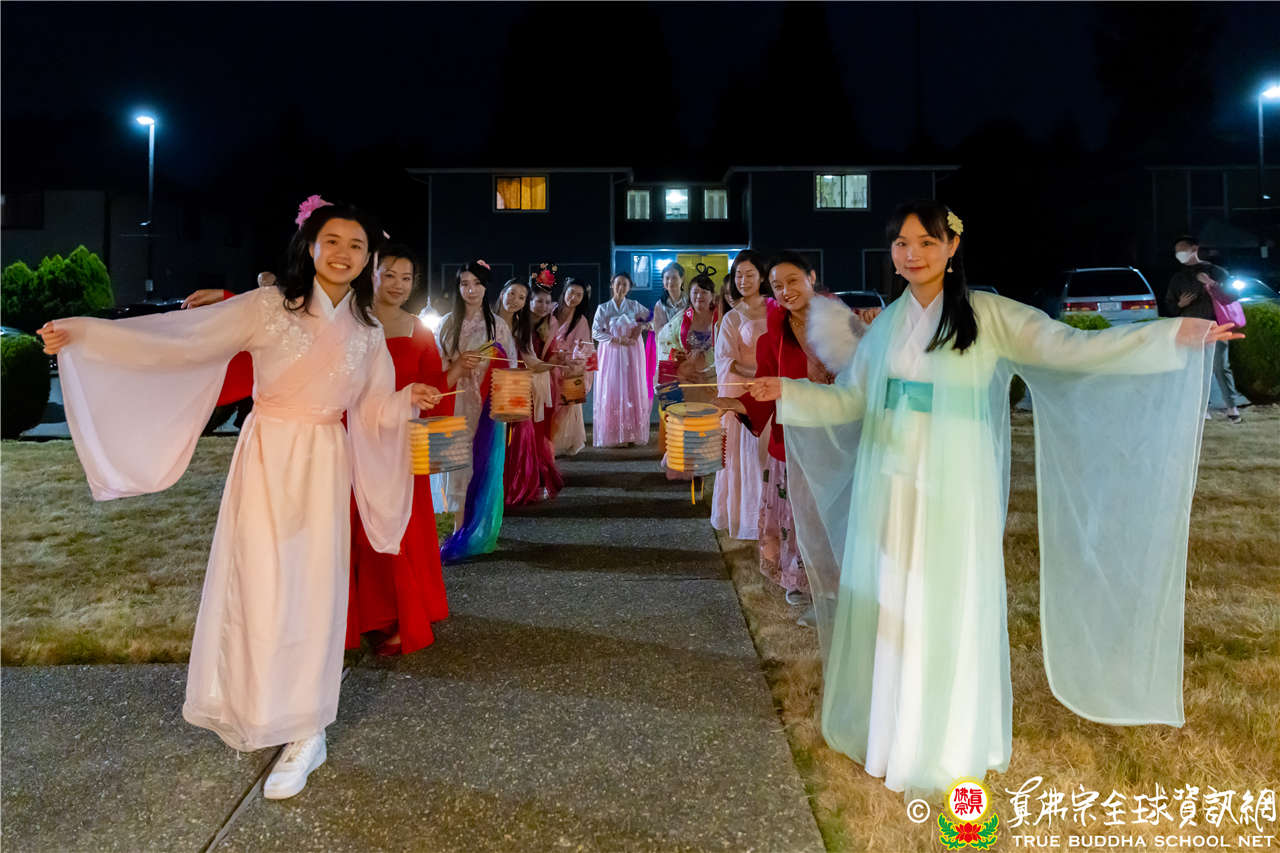
Next discourse on the Vimalakirti Sutra: Discourse 33, 11 September 2022 - Chapter One—Buddhaverse (Continued)
Previous discourse on the Vimalakirti Sutra: Discourse 31, 4 September 2022 - Chapter One—Buddhaverse (Continued)
Index of links to all discourse on the Vimalakirti Sutra: https://en.tbsn.org/guidem/detail/2975/
Back to the main index page of all dharma discourse: https://en.tbsn.org/guidem/index
Full webcast of 2022.09.10 Medicine Buddha Group Practice (Ling Shen Ching Tze Temple, Redmond, USA) and dharma discourse with English interpretation: https://youtu.be/6rwACFe9218




